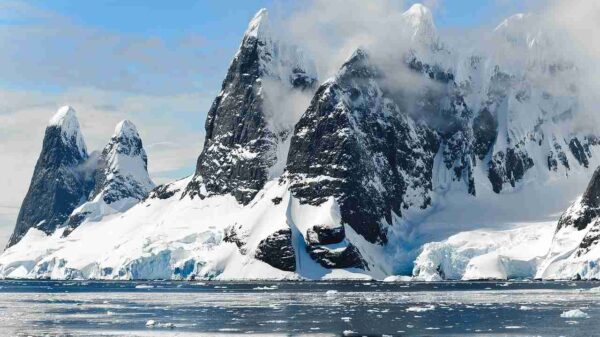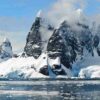Extreme events in Antarctica, including ocean heat waves and ice loss, are projected to intensify and become more frequent, posing significant threats to the region’s delicate ecosystems, according to a recent study published in the journal Frontiers in Environmental Science.
The research highlights that these extreme occurrences are likely just the beginning, underscoring the need for immediate and drastic action to limit global warming to the Paris Agreement’s target of 1.5 degrees Celsius.
Lead author Professor Martin Siegert from the University of Exeter stressed the global implications of Antarctic change, asserting that achieving net-zero greenhouse gas emissions is paramount in preserving Antarctica’s unique environment.
“Reducing greenhouse gas emissions to net zero is our best hope of preserving Antarctica, and this must matter to every country — and individual — on the planet,” Prof. Siegert said.
The study meticulously reviewed evidence of extreme events encompassing weather patterns, sea ice dynamics, ocean temperatures, glacier and ice shelf systems, and both land and marine biodiversity in Antarctica and the Southern Ocean.
The analysis concludes that these events could inflict substantial stress and damage on Antarctica’s ecosystems in the coming years and decades. Urgent policy action is being urged by the researchers to mitigate these impacts.
Prof. Siegert also underscored the potential breach of international agreements, noting, “Signatories to the Antarctic Treaty pledge to preserve the environment of this remote and fragile place. Nations must understand that by continuing to explore, extract and burn fossil fuels anywhere in the world, the environment of Antarctica will become ever more affected in ways inconsistent with their pledge.”
The vulnerability of Antarctica to a spectrum of extreme events was assessed by the researchers in the wake of a series of recent incidents. Notable among these was the unprecedented heat wave that struck East Antarctica in 2022, causing temperatures to surge by a staggering 38.5 degrees Celsius above the mean. In addition, the study noted record-low winter sea ice formation.
The impacts of these extreme events extend to biodiversity as well. High temperatures have been linked to diminished krill populations, resulting in breeding failures for krill-dependent predators. Evidence of this impact was seen in the form of numerous dead fur seal pups on beaches.
Co-author Professor Anna Hogg from the University of Leeds highlighted, “Antarctic glaciers, sea ice, and natural ecosystems are all impacted by extreme events. Therefore, it is essential that international treaties and policy are implemented in order to protect these beautiful but delicate regions.”
Furthermore, the retreat of Antarctic sea ice has led to the opening up of new areas accessible by ships. The researchers emphasize that careful management will be crucial to safeguarding these vulnerable sites from potential environmental degradation.
































































